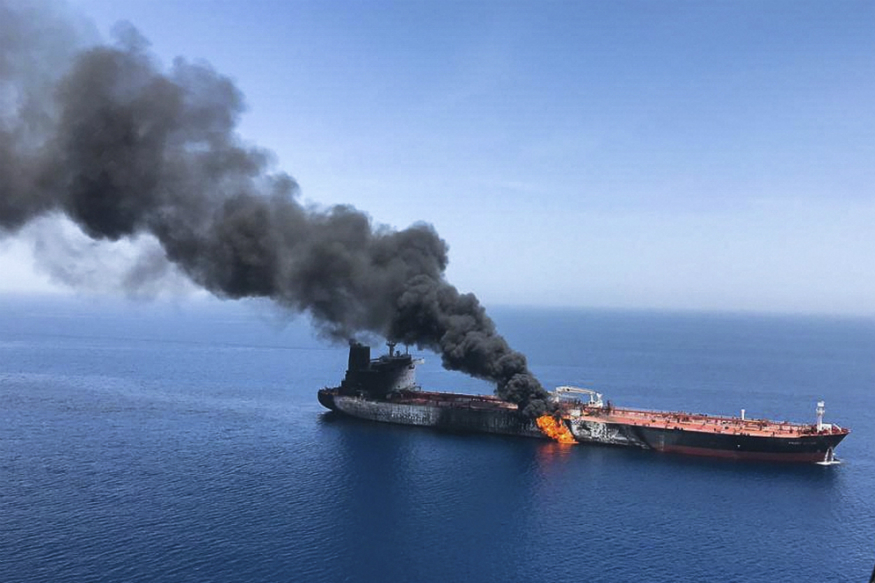
Time timid Europe stands up for Iran

The Persian Gulf resembles a chess game, but with a difference. One wrong move by either of the two primary players — Iran or the United States — and the board will blow up. The world is watching the spectacle unfold, hoping it will end without necessitating a bloody conflict. Unfortunately, one major observer who can make a difference is letting the situation drift: The European Union.
As a signatory to the nuclear deal with Iran that in 2015 raised hopes of a lasting peace in the Middle-Eastern region, Europe is inexplicably coy. Besides mildly protesting when incumbent US President Donald Trump last May walked out of the deal unilaterally and more recently when he discontinued the waivers to eight oil importing countries from doing business with Iran, the EU has simply not used its clout with the US to hammer out some sort of an interim compromise.
Iran, which was naturally hoping that the EU would exert its good offices with its key ally in Washington has warned that it will ignore the deal too, and resume its uranium enrichment to levels that existed before the deal was signed.
The EU’s pusillanimity is a throwback to 2003 when in the run up to the US invasion of Iraq, countries like France and Germany vociferously opposed such action. But the two countries were unable to counter the then George W Bush administration beyond token opposition. When the invasion actually occurred, the governments of the two powerful European countries had no clue how to intervene. As the last 16 years have shown, the EU is still to grow out of its subservience to the US.
Washington too emotionally blackmailed the two EU countries in 2003, telling France how it saved that nation from a rampaging Hitler in the Second World War and reminding Germany how it helped in the reconstruction of that nation after the war with the generously endowed Marshall Plan. Britain, of course, has rarely raised its voice against the US as London’s pre-eminence after the war was ensured by Washington which, among other things, helped prop up the Pound Sterling.
Unfortunately, in today’s geo-power politics, there is none other than the top nations in the EU which can prevail upon Trump to lay off Iran. The situation is on a knife edge with sporadic mystery attacks on third party oil tankers in the Persian Gulf. The US blames Iran for the attacks but Tehran has vigorously denied any involvement.
Saudi Arabia and its ally, the United Arab Emirates, are restive and have warned of a conflagration if Iran does not give in to the US demand of a wholesale stop to its nuclear project. Not just that, Trump has added that Iran must end its ballistic missile programme.
The US is using its time-tested tactics to build some sort of a world opinion against Iran in the event Trump decides to go in for the kill. The tactics are similar to how it “creatively” isolated Iraq’s Saddam Hussein post the September 11, 2001 attack on the US. When the first bombs were dropped on Baghdad in March 2003, the reaction from around the world was muted. By the time the world realised that the claim of WMDs (Weapons of Mass Destruction) in Iraq was an utter lie, the damage was already done. The US had achieved its goal of removing Saddam Hussein and got back its control over Iraq.
Similarly, Washington is gradually trying to push Iran into a corner, smear its reputation as a rogue state and attack at an opportune moment. Obviously there are differences between Iran and Iraq. Tehran is not a pushover. Its military is not just a professional outfit, it has in addition the revolutionary zeal carried forward from the days of the 1979 revolution. In addition, Iran has tremendous influence over the Shia in Iraq which includes the government in Baghdad. Already the Iraqi government is demurring against the ratcheting up of tensions in the region and has requested the US not to aggravate the situation.
In all this, it is the role of the EU signatories to the deal that is disappointing. Until now they have chosen to behave like the US’s poodle, a description used by critics to describe the then British prime minister Tony Blair when he supported the US invasion of Iraq.
What is even more surprising is that the EU gains nothing from the Trump administration’s belligerence against Iran. Both Germany and France, for instance, have their own cordial relationship with Iran both economic and otherwise and stand to lose significantly in the event of a conflict.
While the EU’s biggest trading partner and closest political friend is undoubtedly the US, it is probably time that powerful countries in that bloc take a stand even at the cost of hurting relationship with Washington. After all, relationships are two-way and the animosity, if it does occur, will not last long. The US too needs Europe.
The EU, as a bloc, should probably look at China and learn to assert its independence when necessary. On core issues, including on Tibet, internal politics or regarding its ties to Iran and Russia, China has rarely kowtowed to the US. There have been no major consequences as a result. Similarly, the EU too should discard its apprehension and fully back its agreement with Iran particularly since Tehran has faithfully kept up its side of the bargain in the nuclear deal. If this means antagonising the US, so be it. As most people would agree, nothing is too heavy a price to pay for peace.


